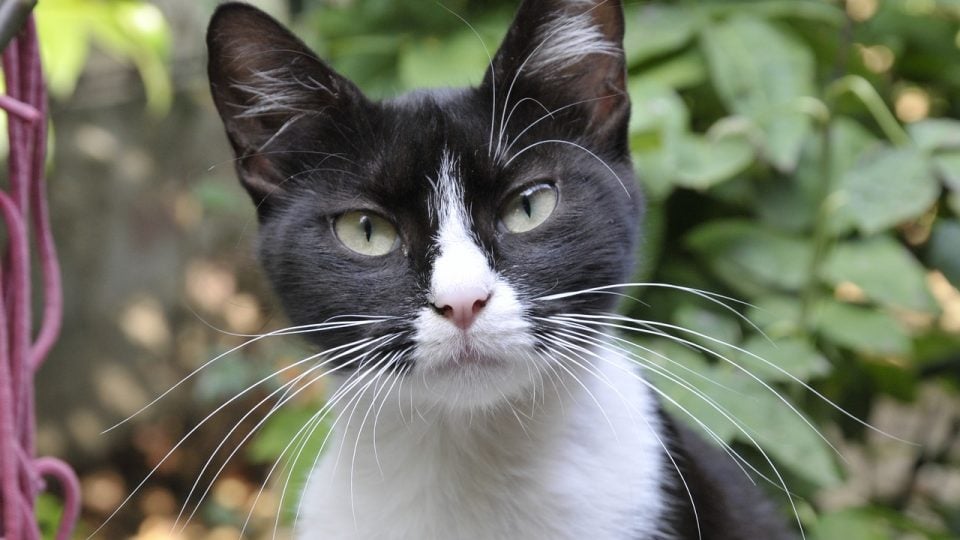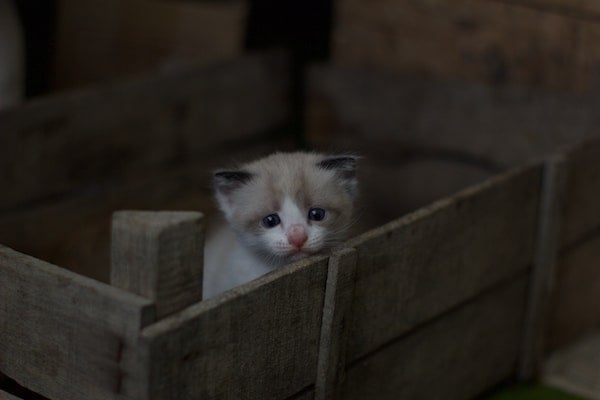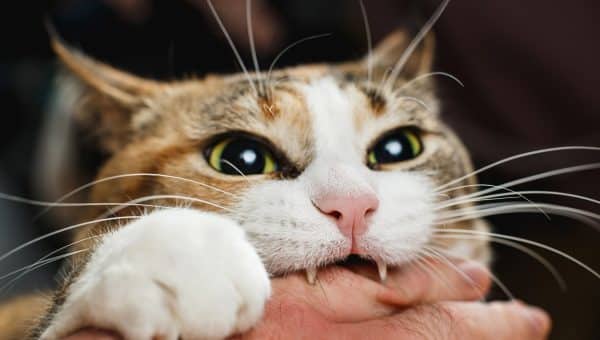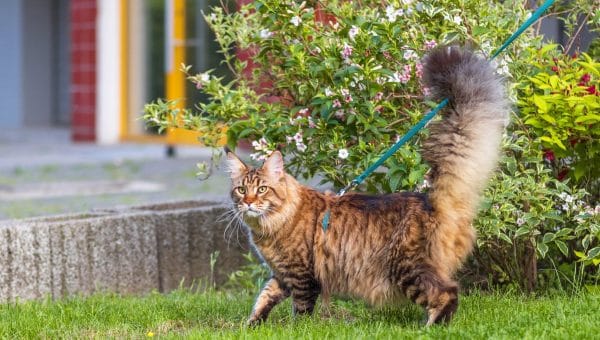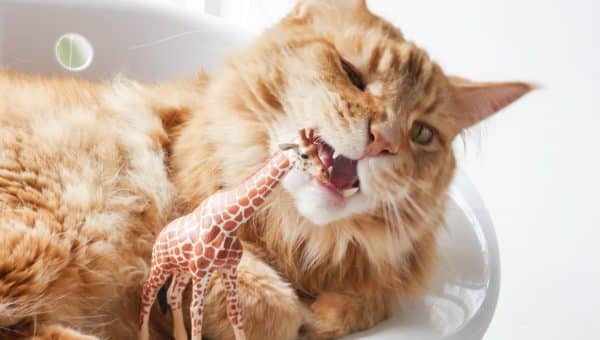Ah, the litter box. It’s the only real downside of having a kitty companion. While litter boxes are quite unpleasant for us humans, they’re not cats’ favorite places either. Imagine if you were forced to potty in a weird box full of…stuff! That said, usually cats figure it all out and are just fine with the litter box. Then, there are the times they are not-so-ok with it, and the box rebellion begins!
Why is My Cat Pooping On the Floor?
This question is as complex as the mind of a cat. But, simply put, it means there is something wrong. This could be as simple as your cat not liking the specific kitty litter you have provided or the box it’s in to more complex issues such as litter box placement or a kitty who isn’t feeling well–either physically or emotionally. As the ASPCA notes, around 10 percent of kitties develop litter box issues so let’s explore some common reasons why your kitty is sending you such stinky messages.
Kitty Does Not Like the Kitty Litter
Cats have extremely sensitive paws and if the litter you have provided does not feel good on them, your cat may choose to avoid it. This can be a problem with any type of litter (or any cat) but, many times, occurs with hard, kernel-type, litter, such as wheat or corn-based litters. It may take you some time, and money, but trying different kinds of litter (paper-based, plant-based, etc) will allow you to find one your sensitive kitty may deem acceptable.
Kitty Does Not Like the Litter Box
Some kitties like using the bathroom in an open-topped environment, others prefer walls, still others prefer absolute privacy. Just like with kitty litter, you may have to experiment with boxes of different shapes, sizes, and types to find one your cat feels safe in.
The Litter Box Needs to be Relocated
The location of the litter box can be an issue for some kitties. Many times, litter boxes are located in areas that are convenient for humans to access or in places we find more acceptable (i.e., out of sight). While that’s great for us, it might not be so great for our cats. Read up on the places cats may find more acceptable in our blog post for ideas on the whys of the wheres of litter box placement.
You Need More Litter Boxes
Even with just one cat, it’s a good idea to provide an extra litter box. This way, if kitty is sensitive about it being used, and you can’t always be around to provide an immediate scoop, she has another option. If you have multiple cats, the experts at PetMD note, “Cats, unlike dogs, are not pack animals. Even if they are siblings from the same litter, there will be times when each kitty wants her own space. And when they are doing something as private as elimination, sharing the same litter box can be stressful for some cats. Ideally, a multi-cat household should have the same number of litter boxes as the number of cats, plus one extra box; in other words, for two cats, there should be three litter boxes.”
You Need to Clean the Litter Box
This one is pretty simple–no one likes having to use a toilet that has already been used. Completely scoop your kitty’s litter box clean at least one time daily.
Your Cat is Upset
Something may have changed in your home that your cat isn’t down with and avoiding the litter box could be their way of expressing this to you. If you’ve recently welcomed another pet or person into your home, have moved, or even have just rearranged the furniture, this could be upsetting for your creature of habit. Give it some time and encourage/reward good litter box use with the things your kitty likes best from you–love, treats, brushing, play…whatever it might be to reassure her she is still your number one.
Your Cat Doesn’t Feel Well
This is a very common root of litter box issues. If your cat isn’t feeling well, whether it’s something simple or more complex, she might let you know by leaving you an unpleasant treat. If you have tried everything else, or the behavior suddenly begins out of the blue–without any major changes to your kitty’s box, your routine, or your household–consult with your vet immediately.
If All Else Fails…
Cat behaviorist Pam Johnson-Bennett recommends a measured approach for cats who, despite all you’ve tried and who’ve received a clean bill of health from the vet, continue to poop outside of the litter box. “Try an experiment and set out an empty litter box,” she advises. “If the cat does eliminate in the box when there’s no litter, keep the box available to her (clean it every time she poops) and then you can eventually try adding a scant amount of litter in the box. If she continues to accept that you can gradually increase the amount.” You can also surround your box with puppy pee pads, cross your paws, and hope for the best.
Further Reading:
- 9 Best Cat Litters For Your Feline Friend
- How to Figure Out the Best Place For a Litter Box
- The Truth About Litter Boxes: 15 Best Litter Boxes For Picky Cats
